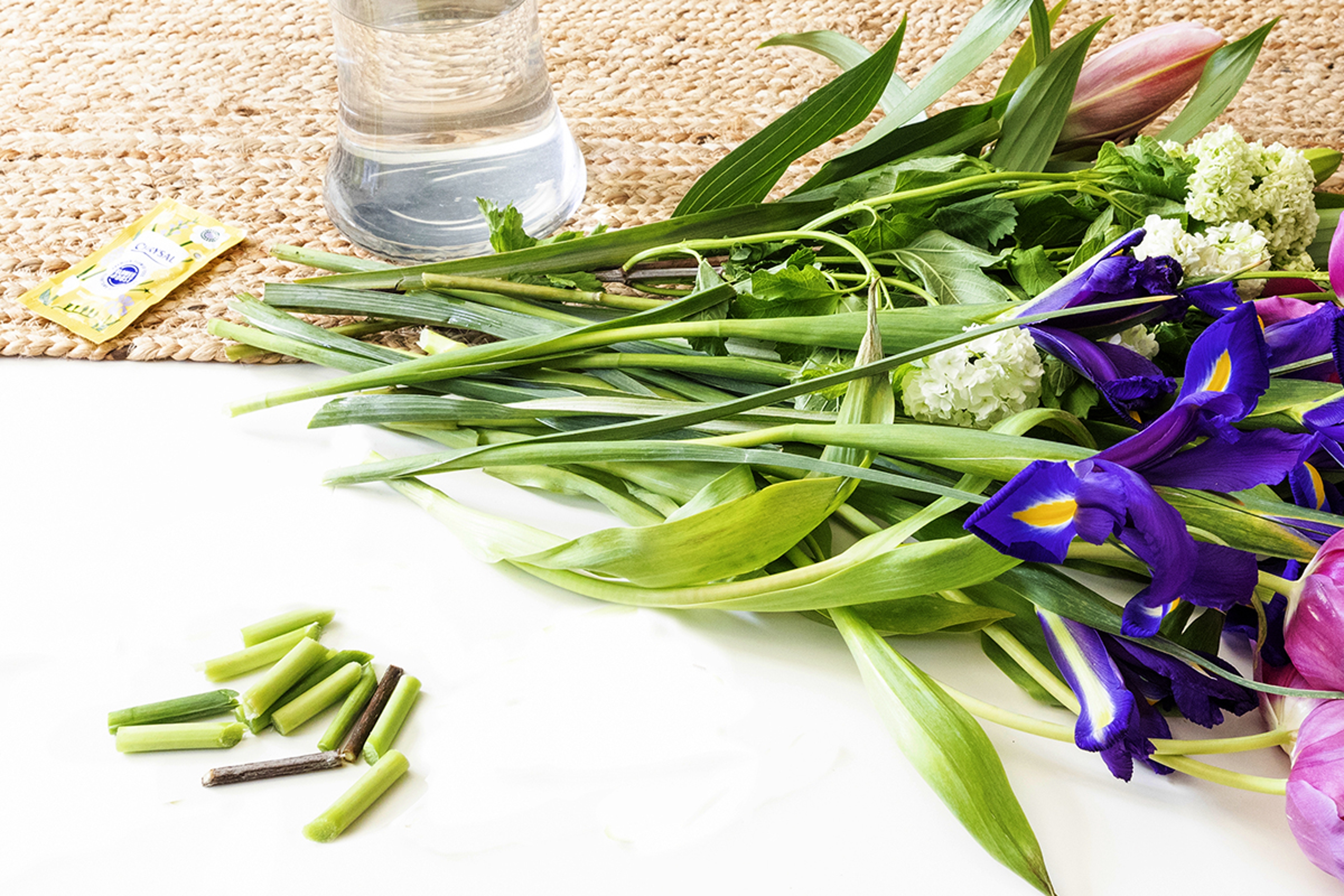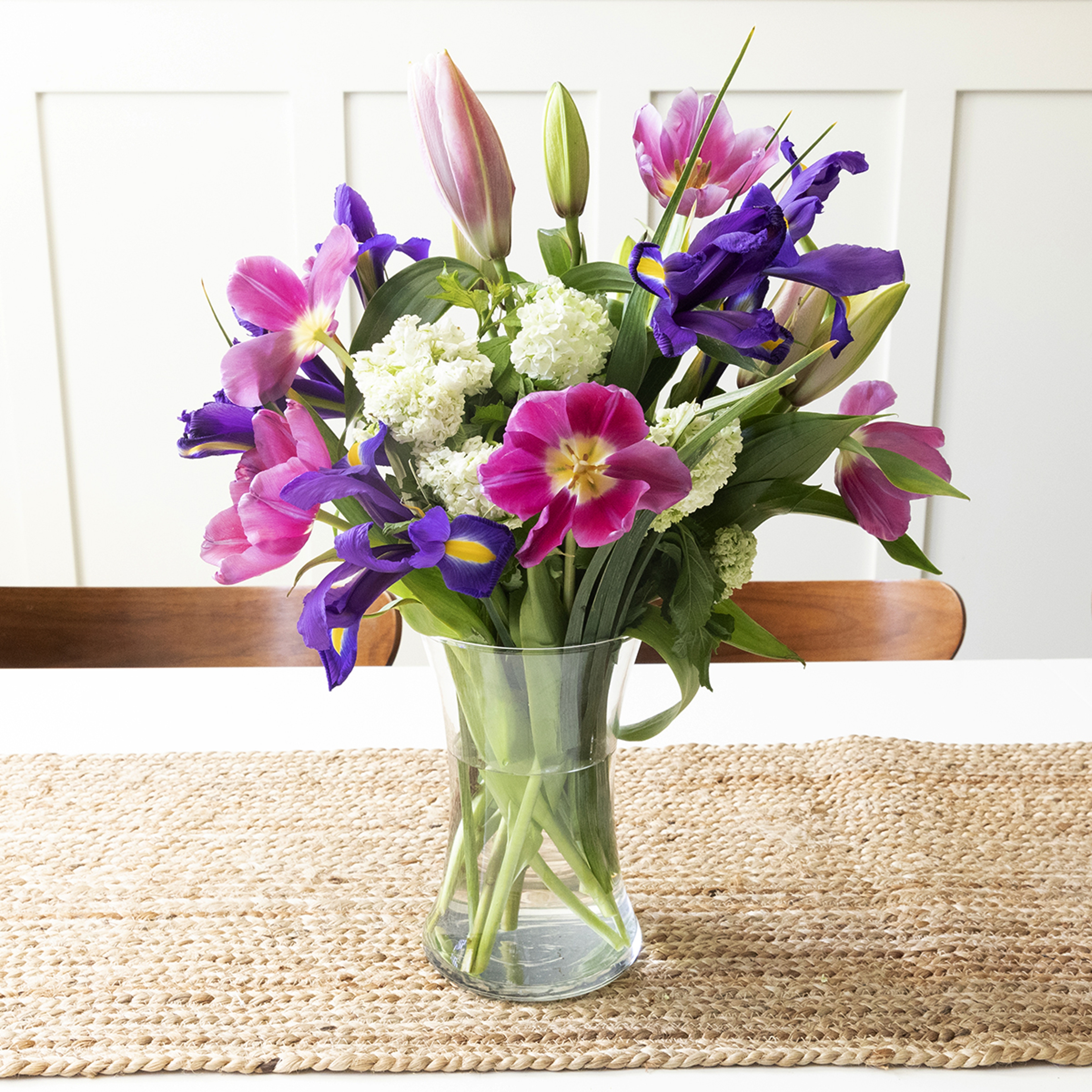6 Ways to Care for a Flower Bouquet
There's more to it than just plopping them into a vase.
Sep 11, 2024
A flower bouquet fits any occasion, but nothing will dampen your enthusiasm faster than watching it wilt before its time. Taking proper care of a flower bouquet requires more than merely plopping blooms into a vase. Knowing what to do can add a week — or more — to their lifespan.
Here are six easy steps for receiving and arranging a flower bouquet to ensure it stays beautiful for as long as possible.
1. Clean and sterilize your vase
You are risking ruin by placing fresh flowers in an unclean vase, which likely contains bacteria from previous bouquets that can weaken the blooms. Wash the vase with soapy water beforehand and give it a rinse with diluted bleach at the end so it's ready for its next use.
2. Trim the stems
Most cut flowers will start to “seal up" the base of their stem within hours of harvest. This prevents them from taking in water, so you'll need to recut each stem before placing it in a vase. A two-centimeter diagonal cut works best, as it maximizes the stem's surface area for taking in moisture. Use a sharp knife instead of scissors — and cut on a flat surface, like a cutting board — so you don't crush the stem.

Consider also whether you want to cut the blooms down in height. A shorter stem means less distance for water to travel, which can make the flowers last longer.
3. Center the arrangement around the largest flowers
While we all have our preferences, the most aesthetically pleasing way to arrange a flower bouquet is often to put the biggest blooms in the middle and surround them with the smaller flowers and those that haven't bloomed yet. Once you like the arrangement, group the stems with a loose rubber band to keep them aligned in the vase.
4. Add water and flower food
Flowers are a lot like humans — they need to stay hydrated. Fresh, filtered water is crucial for long-lasting blooms. The amount depends on your flower type. Fill vases two-thirds full if they contain woody varieties, such as hydrangeas or roses; soft, green-stemmed flowers, such as lilies or tulips — the 2022 flower of the year — need it just half filled.
Cool water is preferred, as warm water will travel up the stems faster and accelerate the blooming process. You can also add a flower food packet, which typically comes with the bouquet. Most food packets consist of a sugar solution that nourishes the flowers and limits bacteria in the water to keep it fresh.
5. Place in a protected space
Fresh flowers last best in a cool, ventilated space that's away from direct sunlight. Watch out for drafty windows and doorways, and keep the arrangement away from fruit, as the ethylene gas that fruits release while ripening will speed up the flowers' decay. Hey, we love fruit, but they just don't mix with flowers.
6. Monitor water and remove wilting flowers

Check the vase's water daily and top it off as evaporation occurs. Change the water out completely whenever it goes cloudy, cleaning out the vase each time (see step No. 1). This also provides the perfect opportunity to remove any wilting flowers, rearrange the remaining blooms, and recut the stems for improved water absorption.
Follow these six steps, and you can significantly extend the lifespan of any flower bouquet. You'll be amazed at how much more enjoyment you get from every bloom when you aren't stressed about how long they will survive.
.svg?q=70&width=384&auto=webp)










